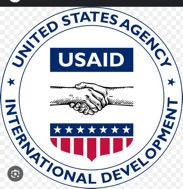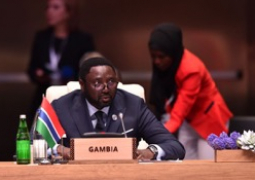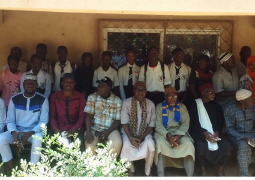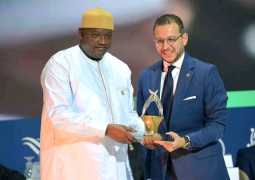
For decades, USAID has been a lifeline for organisations addressing issues such as human rights, healthcare, democracy, and economic development. Now, with funding frozen and projects halted, the very communities that depend on this support face an uncertain future.
In The Gambia, USAID-backed programs have played a crucial role in transitional justice, democracy-building, and human rights efforts. Activists warn that the funding suspension will have severe consequences, particularly for survivors of past human rights violations, exiled communities, and organisations working to strengthen democracy.
As organisations scramble to find alternative funding sources, activists warn that without immediate intervention, years of progress could be undone. They urge civil society organisations (CSOs) to diversify their funding sources to ensure long-term sustainability.
According to Ma Jabou Ceesay, Programs Associate and Project Coordinator, Women’s Association for Women and Victims’ Empowerment (WAVE) advocate, USAID funding has been instrumental in supporting victims of human rights violations during the regime of former Gambian president Yahya Jammeh. His organisation (WAVE) has worked extensively to assist the exiled Ndigal Sect in Senegal, a religious minority forced to flee The Gambia nearly 15 years ago.
Through USAID funding channeled via Freedom House, Ceesay’s organisation facilitated the participation of over 100 exiled Gambians in the country’s transitional justice process.
Social cohesion programs helped bridge the gap between exiles and the new residents of Kerr Mot Ali, The Gambia. Additionally, the initiative provided 40 exiles with national identification documents, granting them access to essential services such as healthcare and education. Prior to this intervention, many women were denied maternity care, and children were unable to attend school due to their statelessness.
However, the sudden termination of USAID funding has disrupted these efforts. Plans to provide more exiles with national IDs have been suspended, leaving many stateless and without access to basic rights. Similarly, social cohesion activities aligned with the recommendations of the Truth, Reconciliation, and Reparations Commission (TRRC) are now at risk of being discontinued.
“The USAID suspension means fewer exiled Gambians will receive identity documents, and participation in reconciliation efforts will be severely limited,” Ceesay said.
Ma Jabou said the impact of the USAID shutdown extends beyond individual projects. It threatens the entire civil society sector in The Gambia. Many organizations are now struggling to retain staff, and some are already reducing salaries to sustain operations.
“Relying on a single donor is risky,” Ceesay advised. “Organizations should explore multiple funding streams, and individuals should consider alternative income sources, such as entrepreneurship.”
Ansumana Camara, the National coordinator of Activista the Gambia, warned that the USAID shutdown could not have come at a worse time. “The Gambia is at a crucial juncture where civic space issues are more important than ever,” he said. USAID has played a vital role in supporting democracy-building initiatives, regional integration, and public education on governance.
Now, with the funding freeze, many organisations are facing financial constraints that may force them to shut down crucial programs. “This is especially alarming given that The Gambia is in a transitional phase, with a draft constitution pending approval. Without USAID support, civil society efforts to engage citizens in the democratic process will suffer,” he alarmed.
Beyond governance, the economic impact is also severe. Many individuals who relied on USAID-funded projects for employment and community development initiatives now face financial uncertainty. “The funding cuts don’t just affect organizations; they impact the everyday people who depend on these programs for survival,” he emphasised.
At the same time, he called on the Gambian government to uphold transparency and accountability. “When civil society is weakened, governance is at risk. The government must step up and support initiatives that strengthen democracy and human rights.”
The USAID shutdown is also affecting larger development projects in The Gambia. Officials in charge of the Millennium Challenge Corporation (MCC-Gambia) threshold program recently confirmed that they received a notification from Washington, D.C., to temporarily pause activities until further notice.
In November 2021, MCC and the Gambian government signed a $25 million Threshold Program to address the country’s electricity challenges. The Gambia became eligible for an even larger compact grant in December 2022, intended to fund economic development initiatives, reduce poverty, and improve infrastructure. Now, with the freeze in place, these efforts have stalled, leaving critical national projects in jeopardy.
Despite the dire situation, civil society leaders are calling for immediate action to mitigate the damage caused by the funding halt. Marr Nyang, Executive Director of Gambia Participates, noted that while his organisation did not receive direct USAID funding, it has benefited indirectly through U.S.-based partners.
“With this support, we’ve done groundbreaking work on governance, elections, and anti-corruption efforts,” Nyang said. However, he fears that the funding freeze will delay key interventions, including legislative and security sector reforms issues that are fundamental to The Gambia’s democracy.
“This will negatively impact not just our work but also government officials, institutions, and local communities who rely on these initiatives,” he added.
However, Nyang remains hopeful that other international donors will step in to fill the gap left by USAID. “The U.S. has been the largest funder of global aid programs. With this loss, the European Union, GIZ, and the Canadian government should consider expanding their support for civil society. The Gambian government, unfortunately, is unlikely to step in to fund organizations that hold it accountable,” he stated.
The sudden suspension of USAID funding is more than a financial setback. It is a direct threat to human rights, democracy, and social progress. From providing exiled communities with legal identity to strengthening governance and civic engagement, USAID has been at the heart of critical development efforts in The Gambia and beyond.
USAID’s impact has been substantial. In the 2022-23 fiscal year alone, the agency participated in 63 transactions totaling over $2 billion, mobilising significant capital from various sources to fund development projects, according to Pioneers Post (Pioneers Post). Its health initiatives have been particularly noteworthy; in 2020, USAID reached 26.7 million children under five and 8.6 million pregnant women with essential nutrition programs, according to USAID (USAID). Additionally, more than 3 million lives are saved annually through USAID’s immunisation efforts, and over 50 million couples worldwide utilise family planning services provided by the agency, according to a USAID 2012-2017 Report.
Read Other Articles In Headlines

NAM plays important role in post-pandemic recovery- Gambian Foreign Minister
Mar 6, 2023, 11:44 AM




